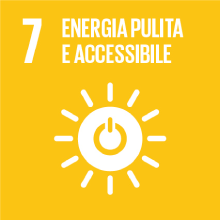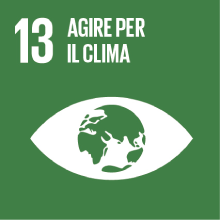ENGLISH LITERATURE
- Anno accademico
- 2025/2026 Programmi anni precedenti
- Titolo corso in inglese
- ENGLISH LITERATURE
- Codice insegnamento
- LMJ490 (AF:560213 AR:324016)
- Lingua di insegnamento
- Inglese
- Modalità
- In presenza
- Crediti formativi universitari
- 6
- Livello laurea
- Laurea magistrale (DM270)
- Settore scientifico disciplinare
- L-LIN/10
- Periodo
- II Semestre
- Anno corso
- 1
- Sede
- VENEZIA
- Spazio Moodle
- Link allo spazio del corso
Inquadramento dell'insegnamento nel percorso del corso di studio
Risultati di apprendimento attesi
1.1 Develop proficiency in modernist and postmodernist literature, while also acquiring competences in contemporary theoretical approaches to literary works including dystopian studies, post-apocalyptic studies, and ecocriticism.
1.2 Further develop analytic skills learnt in BA course to include knowledge of literary and cultural history, critical methodology, theory, and interdisciplinary studies.
2. Application of knowledge and understanding
2.1 Apply knowledge and understanding in classroom discussions in order to articulate and defend arguments, consider different viewpoints and textual interpretations, and evaluate evidence.
2.2 Apply knowledge and understanding to a variety of 20th- and 21st-century texts.
3. Ability to formulate judgements
3.1 Ability to formulate judgements in analysing literary and cultural phenomena.
4. Communication abilities
4.1 Carry out autonomous work and discuss the results of one's own research.
4.2 Communicate results to specialist and nonspecialist audiences clearly and unambiguously.
4.3 Development of advanced communication skills in English.
5. Learning skills
5.1 Develop learning skills to allow to continue studying in a manner that may be largely self-directed or autonomous.
Prerequisiti
Contenuti
This course will investigate representations of wastelands in English and American literature between 1922 and 2006. It will focus on how three different literary genres – poetry, dystopian literature, and post-apocalyptic fiction – have imagined and portrayed lands of desolation and ruin, with a particular focus on the city of London. The wastelands analysed in this course are desolate places not only in a geographic but also in a psychological sense: they are the result of catastrophic events which marked the decay or destruction of modern civilization, leaving behind only memories of a lost world, remains of past languages, objects, emotions. The course will begin with a study of T.S. Eliot’s "The Waste Land" (1922), discussing the (post)apocalyptic imagery of the poem – the walking dead crossing London Bridge in a City of ruins – and poetry conceived as ‘fragments’ and ‘a heap of broken images’ of past literature and culture. We will then move on to George Orwell’s "Nineteen Eighty-Four" (1949), where dystopian London is an urban wasteland in the aftermath of nuclear warfare, and all that is left of a forbidden and forgotten past are broken household objects and fragments of nursery rhymes. The last work that will be studied is Cormac McCarthy "The Road" (2006), where the consequences of an unnamed ecological catastrophe can be seen not only in the barren landscape but also in the fragmented language that mirrors the physical and psychological desolation of a father and a son, the protagonists of the novel.
Testi di riferimento
T.S. Eliot, THE WASTE LAND (edited by Michael North, a Norton Critical Edition, W.W. Norton, 2001)
George Orwell, NINETEEN EIGHTY-FOUR (edited by John Bowen, OUP, 2021)
Cormac McCarthy, THE ROAD (Pan Macmillan, Picador Collection, 2022)
CONTEXT AND CRITICISM (mandatory readings)
Gabrielle Mcintire, ‘"The Waste Land" as Ecocritique’, in The Cambridge Companion to "The Waste Land", pp. 178-193
Gregory Claeys, ‘The Origins of Dystopia: Wells, Huxley and Orwell’, in The Cambridge Companion to Utopian Literature, pp. 107-131
Erik Jaccard, ‘Not Death, but Annihilation: Orwell’s "Nineteen Eighty-Four" and the Catastrophe of Englishness’, in Critical Insights, pp. 99-112
Greg Garrard, ‘Beginnings: Pollution’ and ‘Apocalypse’, in Ecocriticism, pp. 1-14, 85-107
James Berger, ‘Post-Apocalyptic Rhetorics: How to Speak after the End of Language’, in After the End: Representations of Post-Apocalypse, pp. 3-18
IMPORTANT: In addition to the texts listed in this syllabus, students are required to download and study articles and slides that will be made available on Moodle. On some occasions, students will be required to download materials IN ADVANCE and bring them to class. Non-attending students are required to contact Dr Cabiati at least 2 months before the date of the exam.
Modalità di verifica dell'apprendimento
Modalità di esame
Graduazione dei voti
28-30L: mastery of the topics covered in class and in the manuals; ability to hierarchize information; use of appropriate technical terminology;
26-27: good knowledge of the topics covered in class and, to a lesser extent, in the manuals; fair ability to organize information and present it orally; familiarity with technical terminology;
24-25: fair knowledge of the topics covered in class and in the manuals; orderly oral presentation; use of technical terminology is not always correct;
22-23: often superficial knowledge of the topics covered in class and in the manuals; unclear oral presentation lacking in technical terminology;
18-21: knowledge of the topics covered in class and in the manuals is at times incomplete; confused oral presentation, with little use of technical terminology.
Metodi didattici
Altre informazioni
Obiettivi Agenda 2030 per lo sviluppo sostenibile
Questo insegnamento tratta argomenti connessi alla macroarea "Cambiamento climatico e energia" e concorre alla realizzazione dei relativi obiettivi ONU dell'Agenda 2030 per lo Sviluppo Sostenibile



